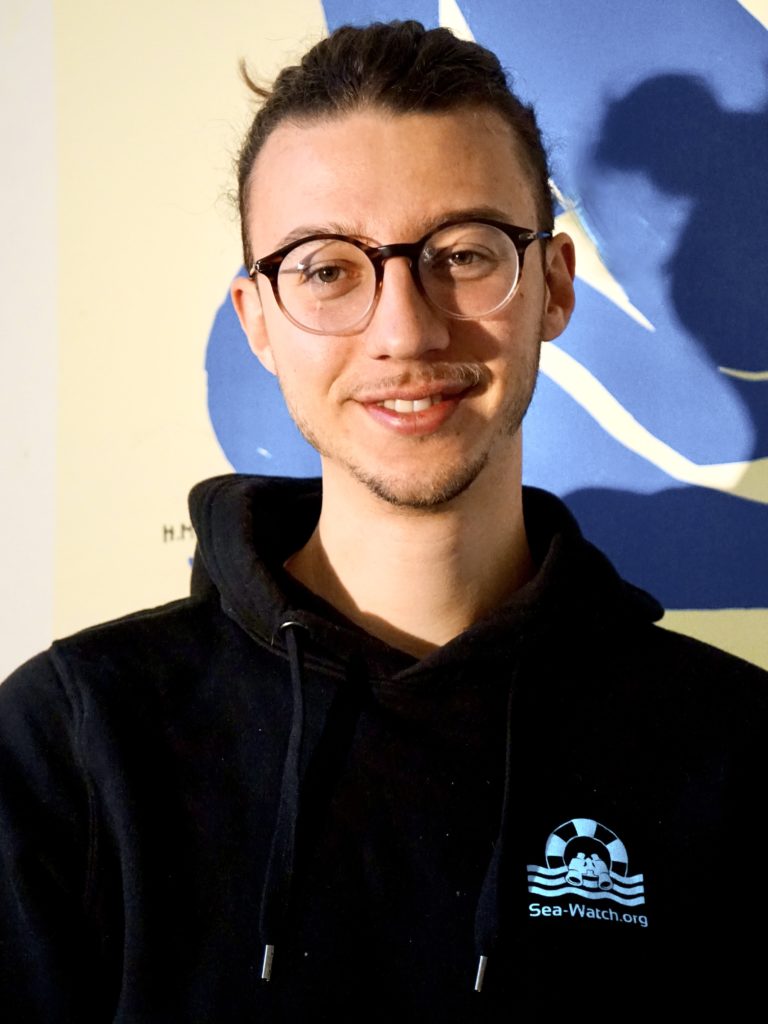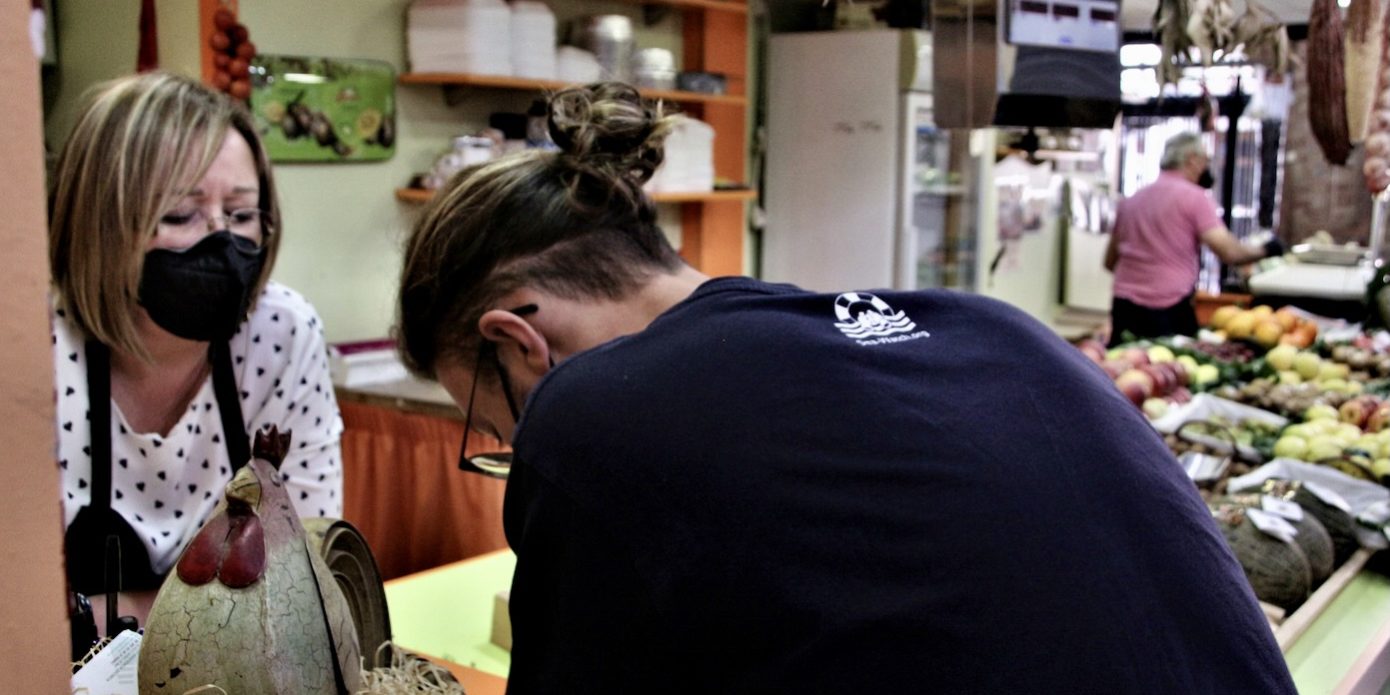Paul is one of our logisticians. He makes sure that the pre- and post-preparations for our missions run smoothly. Today he tells us how the Corona pandemic suddenly doubled the workload of the logistics team and why thanks to his job, he has become a skilled car driver.
First things first: How did you get involved with Sea-Watch and why did you stay with us?
Paul: I grew up on the Mediterranean island of Sardinia. The flight route across the central Mediterranean has therefore been present in my life for a long time. I still remember very well when the crew around Captain Carola Rackete steered the Sea-Watch 3 into the port of Lampedusa in the summer of 2019. The case made huge waves in Italy.
Alongside my anger at the authorities, however, also hope emerged: The crew on board defied Salvini’s policy of closed ports by their act of practical solidarity and sent out a clear signal against Fortress Europe. Spending one’s energy and time to fight against the racist migration policy made a lot of sense to me.
That’s why I started working for Sea-Watch as a fundraising intern in 2020. From the very beginning, I was inspired by the atmosphere in the organisation. After the internship, I spent a year helping out here and there as an activist alongside my studies. Then I spent a summer with our air reconnaissance mission Airborne on Lampedusa and took care of the logistics on the island. It went on and on like that until I then started as a ship’s logistician in autumn 2021. Two years have passed since my internship, but my enthusiasm for the cause has not waned!
What are the special features of logistics for a civilian rescue ship?
Paul: In general, well-functioning logistics are indispensable in a globalised world, although many people don’t necessarily perceive it that way. It was once explained to me like this: Logistics is like Wi-Fi – people only talk about it when it doesn’t work.
What’s more, at Sea-Watch we work in a politically charged environment. State actors and authorities often deliberately make life difficult for us. This means that many processes cannot be standardised and planned well in advance but rely on flexibility and improvisation. Our job is to constantly react to unexpected developments while always finding the fastest, safest and most cost-efficient alternative. So a solution-oriented approach is very important to us.
What impact did the Corona pandemic have on your work?
Paul: Corona has completely turned our work on its head. Since the beginning of the pandemic, Sea-Watch has adapted very rigorous Corona measures, which are constantly adapted to the current infection situation by our medical department.
These measures stipulate, for example, that the crew is only allowed on the ship after they have completed a five-day quarantine in small groups and subsequently received a negative PCR result. The ships are then, so to speak, self-contained, Corona-free rooms, which is why the crew can no longer interact in person with the outside world. Coordinating the many quarantine flats, PCR tests etc. is of course a lot of work that would be unnecessary if Corona were not there.
What does a normal working day look like for you?
Paul: Basically, it is my responsibility to buy everything that has to go on the ship. I mean really everything: from oat milk, vegetables and toilet paper to hydraulic hoses, screws and welding equipment. Then there is the coordination of all crew members’ arrivals and departures, including their quarantine time. So on a normal working day I spend a lot of time in the car doing all the shopping and taking crew members to the PCR test, the station or the ship. I used to be a very insecure driver – but those days are long gone.

Were there ever situations in your job where you thought afterwards: “I never thought I would ever experience something like this”?
Paul: I’ve had several moments like that in the last few months. Once, a large order of provisions for an upcoming mission was late and would not have arrived until after the ship was scheduled to leave. So within one afternoon we had to somehow manage to purchase 600kg of rice to make the departure on schedule possible after all. With the transporter, we went to almost all the supermarkets in the city and also had to drive to neighbouring towns to actually get the 600kg of rice, because no supermarket has that much rice in stock, of course.
That’s part of our job: No order can be too out-of-the-ordinary, no quantity too large – we have to make it happen somehow. Because at the end of the day, the goal of our work is clear: Our ships must be able to set off on the rescue mission as quickly as possible, whatever the cost.











